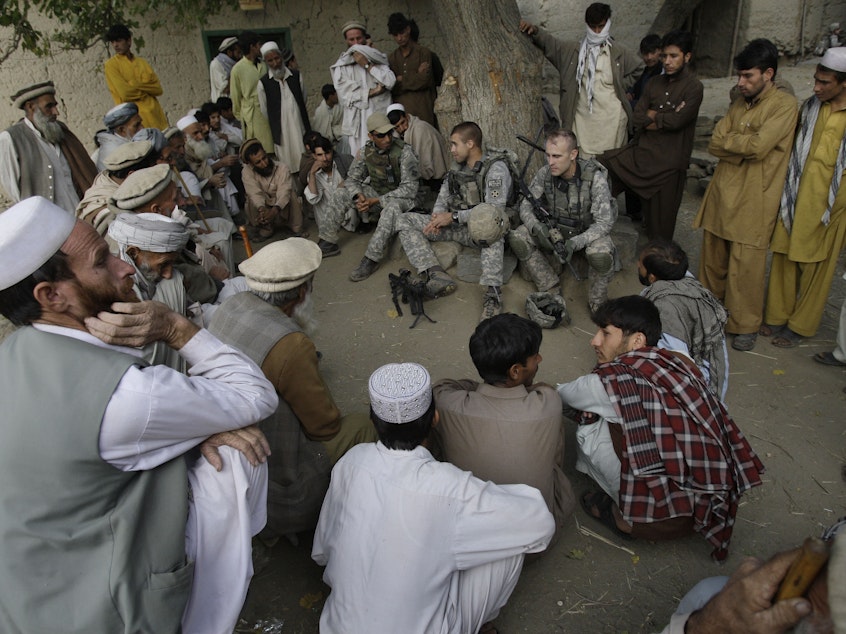Evacuation Of Afghan Interpreters And Others Who Aided U.S. To Begin In Late July

The U.S. will begin flying Afghan nationals who supported U.S. and coalition operations in Afghanistan, according to a senior Biden administration official. Evacuation flights will begin in the last week of July.
During the 20-year war in Afghanistan, thousands of Afghan citizens served as interpreters, provided intelligence and assisted the U.S. and its coalition partners as drivers, security guards and in other roles.
Roughly 18,000 Afghan nationals, along with tens of thousands of their family members, have applied for special immigrant visas to the U.S. But administrative delays have long meant the visa process can take years, allowing the backlog to grow.
Now, with the U.S. withdrawal 95% complete — and Taliban control of the country growing by the day — the threat of revenge attacks on those known to have worked with the U.S. is at a renewed high.
Under the effort, called Operation Allies Refuge, as many as 70,000 people will be flown out of Afghanistan to one or more third countries while they await visa processing. Those third countries could include Uzbekistan, Tajikistan or a country in the Middle East or Europe, according to a senior Pentagon official who was not authorized to speak publicly. It could also include the U.S. territory Guam.
Sponsored
According to the administration official, the operation will be led by longtime State Department veteran Ambassador Tracey Jacobson, who previously served as chief of mission in Kosovo, Tajikistan and Turkmenistan. Russ Travers, deputy homeland security adviser and former head of the National Counterterrorism Center, will help coordinate among federal agencies.
The evacuation faces serious challenges, defense analysts say. Many of the applicants and their families live outside of Kabul in regions already captured or contested by the Taliban. It may be difficult for embassy officials to contact people in rural areas.
A key to the future of U.S. and other diplomatic missions in Afghanistan is the security of Hamid Karzai International Airport in Kabul, the country's lone international airport. Turkey is expected to provide security for the Kabul airport, together at least for a time with U.S. troops who will also provide security for the U.S. Embassy.
Pressure had been mounting on the White House for months to take concrete steps to evacuate the interpreters and other Afghan nationals.
Last month, a bipartisan group of House lawmakers, several of whom served in the Middle East alongside interpreters and fixers from Afghanistan and Iraq, introduced legislation to ease administrative obstacles.
Sponsored
Those obstacles included requiring visa applicants to get a medical exam that was only available at a single clinic in Kabul, lawmakers said. Now, applicants can get the exam within 30 days of arriving in the U.S.
The bill was authored by Rep. Brad Wenstrup, a Republican who served as a combat surgeon in Iraq, and Rep. Jason Crow, a Democrat who did three tours as an Army Ranger in Iraq and Afghanistan. It passed the House late last month with overwhelming bipartisan support and has gone to the Senate. [Copyright 2021 NPR]
